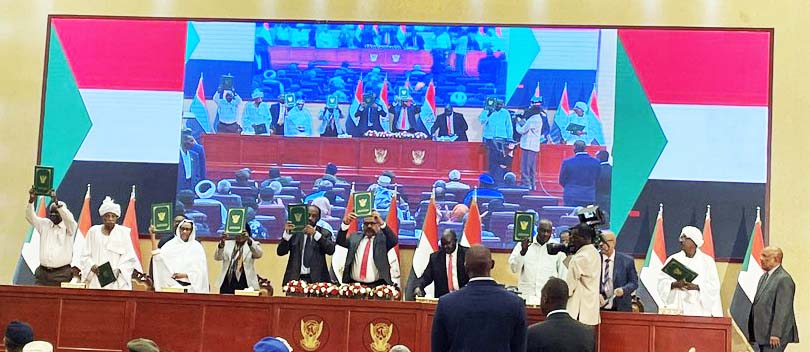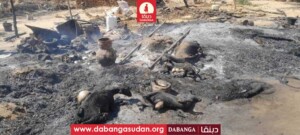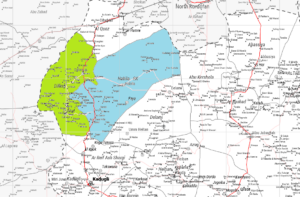Framework Agreement signatories reject Egyptian dialogue proposal

The signing ceremony of the Framework Agreement in Khartoum on December 5 (Irma van Dueren)
The parties and groups that signed the Framework Agreement with the military junta in Khartoum on December 5 say they reject the Egyptian initiative for an inter-Sudanese dialogue platform to be held in Cairo. “The dialogue process was agreed upon in advance and cannot be changed at the last moment,” a spokesperson said.
In a press statement following a meeting of the Framework Agreement signatories at the premises of the National Umma Party in Omdurman yesterday, Yousef urged the non-signatories to participate in the upcoming workshops in accordance with the Framework Agreement.
“There is no alternative to the Framework Agreement,” Khaled Omar Yousef, a leading member of the Forces for Freedom and Change-Central Council (FFC-CC) said. “The dialogue process was agreed upon in advance and cannot be changed at the last moment.”
In a bid to break the political stalemate between a number of political groups in Sudan over important but thorny issues in the Final Agreement on the coming transitional period, Egypt proposed a new platform for dialogue between the parties.
Some parties who have not signed the agreement welcomed the Egyptian initiative, such as the Forces for Freedom and Change-Democratic Block (FFC-DB).
FFC divisions.
The FFC coalition has seen many internal divisions, with several split-off groups emerging in the past months.
The FFC-DB was formed two months ago and included the National Accord Forces (NAF), themselves a split-off faction of the FFC also referred to as the FFC-National Accord, the Democratic Unionist Party (DUP), and the Sudanese Ba’ath Party, amongst others.
In early December, the eastern Sudanese High Council of Beja Nazirs and Independent Chieftains faction presided over by Sayed Tirik joined the group.
The Ba’ath Party recently left the Forces for Freedom and Change altogether due to the fact that the majority of coalition parties signed the Framework Agreement, which the party believes is “devoted to legitimising the October 25 coup”.
According to the FFC-CC, the only parties of the FFC-DB entitled to sign have been previously agreed upon, namely the Justice and Equality Movement and the Sudan Liberation Movement faction led by Minni Minawi. This stance sparked criticism and was seen as exclusionary.
Planning
The Final Agreement, the second part of the agreement between civilian groups and the military junta, was originally planned to be signed by the end of 2022. Later, this deadline was postponed but negotiations were announced to start by the end of December.
Yousef now announced that the dialogues that are to lead to a Final Agreement with the military junta will commence on January 8.
The next day, a three-day conference will be held in the Friendship Hall in Khartoum, to agree on the five outstanding issues of justice and transitional justice, security and military reform, approaches to empowerment removal*, possible amendments to the Juba Peace Agreement, and governance issues regarding eastern Sudan.
The meeting of the signatories confirmed that “participation of the broadest base of stakeholders” in the dialogue on these issues is needed “to develop the necessary solutions in a way that secures the transition to democracy”.
The FFC-CC wants to hold on to this planning, which does not hold space for the Egyptian initiative.
International support
Yousef welcomed positions supporting the Framework Agreement, the latest of which was the US Secretary of State supporting the agreement.
He praised the establishment of coordination mechanisms and unification of positions among the signatories to the Framework Agreement and pointed to “the importance of accelerating the pace to reach the Final Agreement in order to restore the transition path to democracy”.
The Trilateral Mechanism announced the holding of a series of meetings this week with the Joint Coordinating Committee of the signatory parties to the Framework Agreement in order to prepare for the next phase of the political process.
The Mechanism affirmed that it will continue to provide expertise and support for expanded consultations on the five issues.
* Empowerment (tamkin) is the term with which the ousted government of Omar Al Bashir supported its affiliates by granting them far-going privileges, including government functions, the setting-up of various companies, and tax exemptions. An Empowerment Removal Committee (full name Committee for Dismantling the June 30 1989 Regime, Removal of Empowerment and Corruption, and Recovering Public Funds) was established by the government of Abdallah Hamdok at the end of 2019 with the aim to purge Sudan of the remnants of the Al Bashir regime. A number of its members were detained for a number of weeks following the military coup on October 25 last year.











 and then
and then